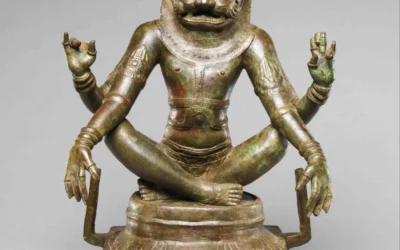Yogic Philosophy to inspire your practice!
I think we can all agree that the deepest growth comes when we are surrounded by a sangha, or spiritual community. When we can share the struggles and the breakthroughs, the insights and the inspiration, the discipline required to stick to our practices comes naturally.
As a practitioner of yoga, meditation, or any spiritual practice, what drives you? How do you keep your aspirations strong and your practice disciplined?
It is equally important, however, to take what we learn in spiritual schools, monasteries, and ashrams back to our families and friends in the wider world. There is no shortage of powerful teachings that point the way to the spiritual realization while living the life of a householder,” someone who has a job and a family.
It is no longer necessary to renounce the material world in order to grow on the spiritual path. In fact, offering ourselves in service to others – whether that be our aging grandparents, or our local neighborhood council – can be one of the most excellent teachers. It is also a great way to gauge how well we are integrating the practices and to see where we can still improve.
So how do we stay inspired when we are the only ones in our household meditating at 6 a.m.? Or when our families scoff because we no longer want to eat their chicken dinner?
We have chosen five of our favorite images, along with inspiring quotes, abbreviated teachings, and personal interpretations to refer to when you need a little reminder. We live in the internet age after all. Here we get to create our own virtual sangha.
1. Karuna – Compassion
Tara is the second of the Mahavidyas, or wisdom goddesses, in the tantric tradition. She is also a beloved bodhisattva of compassion in action in the Tibetan Buddhist tradition. (A bodhisattva is one who achieves enlightenment for the benefit of all, choosing to return to the karmic cycle of life and death on earth to help others.)
Tara, in one form or another, is found across the Eastern contemplative traditions. This is because the energy of compassion, and especially compassion in action is a very important theme for living a full life in a human body, with or without self-realization. The Dalai Lama says, “if you want others to be happy, practice compassion. If you want to be happy, practice compassion.” Pretty simple, yes?
This beautiful stone carving of Tara watches over the Samyama yoga shala. When we open our eyes and look up after a deep meditation, we remember the gift of being human and our ability to serve the greater good with compassion and love for all.
2. Tyāgaḥ – Renunciation
This teaching from the Bhagavad Gita refers specifically to renouncing our DESIRE to enjoy the fruits of our actions. In an era dominated by social media and seeking constant validation through ‘likes’ and new followers, I find this very relevant.
There is nothing inherently wrong with desire, especially when it comes to enjoying a job well done or the fruits of a good deed. The problem is that no desire can ever be fulfilled to complete satisfaction. Let’s say we find a perfect home, then we want new furniture to match, a bigger car, a bunch of new friends who will come to our dinner parties, and on and on. This cycle of perpetual desires ultimately causes suffering. On the other hand, if we work and act with passion and dedication, offering the fruits to something bigger than ourselves, even if we fail, we suffer less. To be unaffected by success or failure is in fact very difficult. It takes a lot of practice.
In my practice today, which was mostly off-the-mat, I began by noticing when I felt more attached and less attached. I was least attached to outcome when I was fully immersed in the present moment, either working, meditating or making love. I noticed more desires arise when I am in traffic, buying groceries, or on Instagram.
This is the first step – awareness. With awareness, we see that even though it may be challenging to implement this teaching, the key is simple. Stay present. When nothing else exists beyond the present moment, imagined outcomes are merely that – imagined.
3) Karma Yoga – The path of union through action
It’s easy to get caught up in our small lives, especially when working hard. I’m telling you, even the beautiful people you follow on Instagram with their photos of tropical islands and volcanoes…even we sometimes forget what a gift it is to be alive. This is where karma yoga, the yoga of action, can be so helpful. All actions whether seemingly important or menial, take place in the present moment. When we take action with love and awareness, not attached or trying to control the outcome, our entire life becomes our practice. It becomes natural to step back, gain some perspective, and return to gratitude.
4. Moksa – Liberation
Today, a butterfly like this one came and sat on my chest during meditation. First, my mind wanted to create the meaning, Oh, I must be very still and open to nature’s energies.” Then “It tickles.” “Why do I brush away ants and flies when they tickle but not this butterfly?” “Why do we value some creatures more highly than others?” and then finally, “Who am I?” at that moment the thoughts dissolved into a vast open space and my mind was still, free.
We sat like this for a while, the butterfly and I. I only stirred when I could feel her flap away, land on my head for a moment, and fly off. When I finished my meditation, I found her inside against the glass trying to get out. I carefully scooped her up and let her fly free. Today we both gave each other the precious gift of freedom.
5. Sankalpa – Heart-felt intention
“No matter what the circumstances are, I make my current experience an offering.”
These words from teacher Jimmy Nataraj inspired my practice today. I had already done my morning meditation when I read them, so I decided I would try to “make my current experience an offering” as I was going through my day.
My family came to visit me in Bali, and now we are traveling to Lombok, Indonesia. As much as I try to let it go, there is a part of me that feels responsible for showing them a good time. At one point, as rain clouds were looming on the horizon, this simple attitude helped me cut the complaining, worrying mind that was acting up and opened me up to enormous gratitude for my surroundings, which are in fact paradise.
Then, when the rain finally did come while we were swimming in this sublime water, it was a moment of pure magic. Just another reminder that in every experience, whether in daily life, or meditation, we can choose our attitude. Today, I choose gratitude.





0 Comments